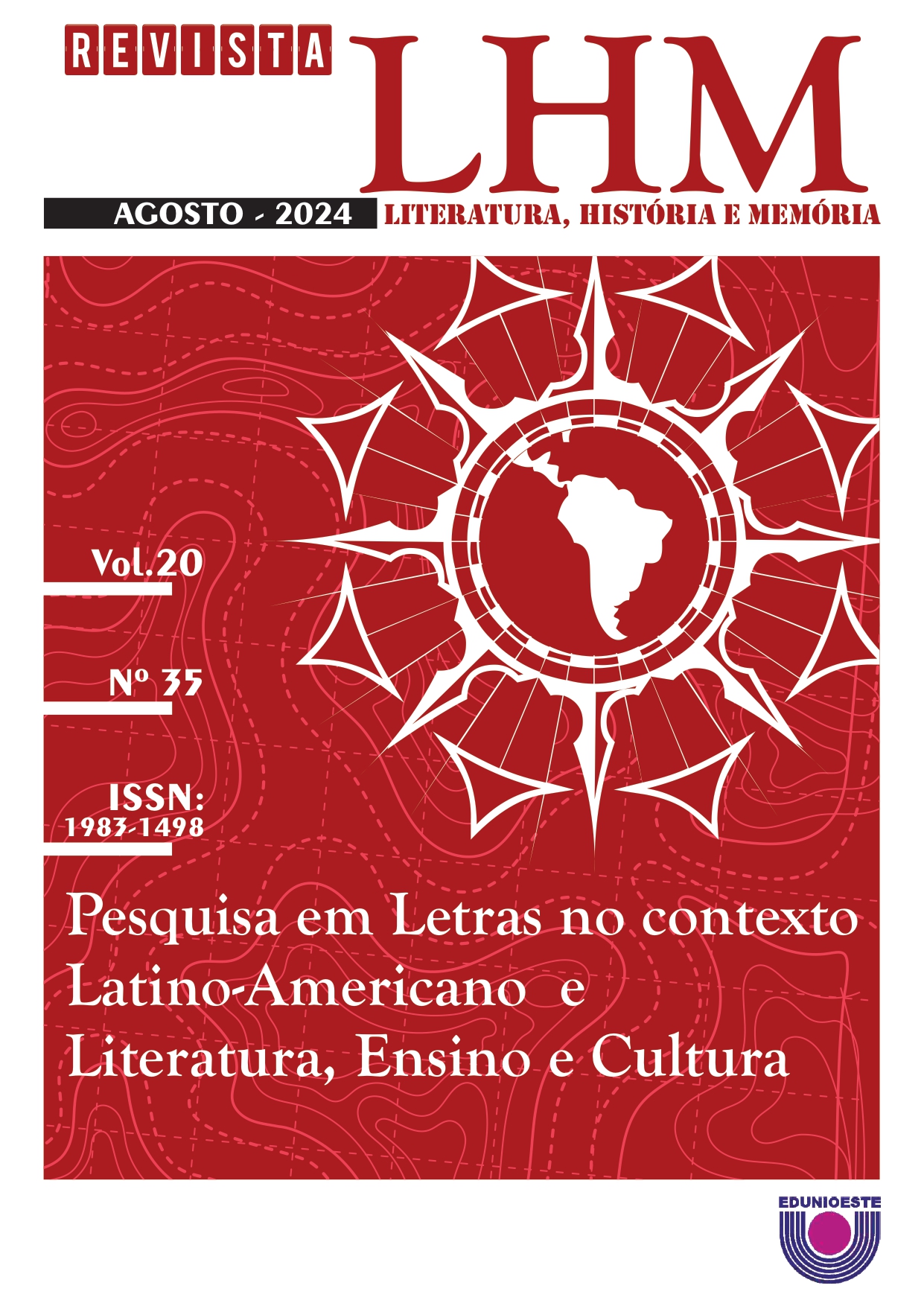A crônica no meio do caminho
a crônica de Carlos Drummond de Andrade e as transformações na sociedade carioca durante o governo de Jucelino Kubitscheck (1956-1960)
DOI:
https://doi.org/10.48075/rlhm.v20i35.31836Resumo
Este artigo tem por objetivo discutir os anos do governo Juscelino Kubitschek (1956-1960) a partir da interseção entre escrita literária e consciência histórica das crônicas de Carlos Drummond de Andrade. A problemática principal é compreender por meio da crônica, tratada e analisada como fonte histórica, como uma representação dos retratos da sociedade urbana do Rio de Janeiro no final da década de 50. Utilizando como fundamentação teórica estudos do campo historiográfico da História Cultural, em que PESAVENTO (2007) e CERTEAU (1994) nos ajudam a compreender as sensibilidades e as práticas cotidianas nas crônicas de Drummond. A metodologia utilizada é a análise da narrativa (SHOLES e KELLOG, 1977), sendo parte integrante das reflexões que estão sendo desenvolvidas na pesquisa em andamento no mestrado.
Downloads
Publicado
Como Citar
Edição
Seção
Licença

Este trabalho está licenciado sob uma licença Creative Commons Attribution-NonCommercial-ShareAlike 4.0 International License.
Aviso de Direito Autoral Creative Commons
Política para Periódicos de Acesso Livre
Autores que publicam nesta revista concordam com os seguintes termos:
1. Autores mantém os direitos autorais e concedem à revista o direito de primeira publicação, com o trabalho simultaneamente licenciado sob a Licença Creative Commons Attribution que permite o compartilhamento do trabalho com reconhecimento da autoria e publicação inicial nesta revista.2. Autores têm autorização para assumir contratos adicionais separadamente, para distribuição não-exclusiva da versão do trabalho publicada nesta revista (ex.: publicar em repositório institucional ou como capítulo de livro), com reconhecimento de autoria e publicação inicial nesta revista.
3. Autores têm permissão e são estimulados a publicar e distribuir seu trabalho online (ex.: em repositórios institucionais ou na sua página pessoal) a qualquer ponto antes ou durante o processo editorial, já que isso pode gerar alterações produtivas, bem como aumentar o impacto e a citação do trabalho publicado (Veja O Efeito do Acesso Livre).
Licença Creative Commons
Esta obra está licenciada com uma Licença Creative Commons Atribuição-NãoComercial-CompartilhaIgual 4.0 Internacional, o que permite compartilhar, copiar, distribuir, exibir, reproduzir, a totalidade ou partes desde que não tenha objetivo comercial e sejam citados os autores e a fonte.


